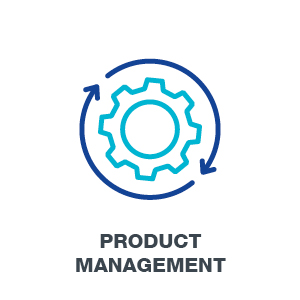Boutique technology recruitment with national expertise
Are you seeking exceptional talent that can take your business to the next level? Whether you’re looking for IT support, Project Managers, Data Analysts, Developers, or Engineers, Michael Page Technology connects you with the talent you need to thrive, adapt, and evolve in a world that’s constantly changing.
We cover a wide range of specialisms, including:










Why work with Michael Page Technology?
As one of the leading UK technology recruitment firms, Michael Page delivers exceptional talent for permanent, temporary, and interim solutions every time. We know projects are difficult, and finding the right person even more so, but it’s what we do, knowing the market, and having the ability to cut through the noise and find you the right person.
We know projects are difficult, and finding the right person even more so, but it’s what we do: knowing the market, and having the ability to cut through the noise and find you the right person.
What sets us apart?
Your search for a reliable technology recruitment agency ends here.
With 45 years of recruitment experience, Michael Page understands that it’s about more than filling a role with the candidate who ticks every box on paper. Working with the most advanced recruitment technology, our consultants each have dedicated roles, specifically focusing on client experience, candidate sourcing, and job placement.
With this approach, we ensure our technology recruiters take the time to understand the individual, their goals, values, aspirations, and their ability to work in tandem with technology to ensure the match we provide you with will take your company to the next level of success.
Our teams deliver a seamless recruitment process that is handled with precision, saving you valuable time and resources.
Roles we specialise in:
- IT Support
- Data Analyst
- Project Manager
- Data Analytics & BI
- Software Development & Engineering
- DevOps & Cloud
- Change & Transformation
- Cloud & Infrastructure
- Cyber Security
- AI & Software Intelligence
Transform your business and customer experience with top-tier technology talent
Partner with Michael Page, leading IT recruitment agency, as you embark on the next wave of your transformation journey. Our technology recruitment specialists are experts at finding the perfect talent to fuel your next wave of innovation.
Get in touch today or submit a job specification to unlock your business potential
Get in touch
If you would like to talk to us about your current recruitment needs, fill in the form below and one of our consultants will call you back.
Client testimonials
From the offset, I found the Michael Page Technology team to be knowledgeable, honest and dedicated to the task. They understood the importance of providing us with candidates that combined technical expertise with the right cultural fit.
What I have valued the most when working with Michael Page was a genuinely consultative approach and I can recommend them without hesitation.
Recruitment ManagerGuinness PartnershipI can only speak in very positive terms about Michael Page. Their approach in finding the desired candidate, pre – interviewing them and getting to know each one was a huge benefit of their service. Their non-pushy approach gave us time to assess and select our candidates properly.
Head of Front Office ProductsFinancial Software CompanyI have the feeling that Michael Page clearly understand the sort of people we are looking for. They consistently deliver quality candidates who can be successful in our organisation.
Business Analyst ManagerUS Fund ManagerGood business partner to work with - honest, reliable and take the time to understand our business needs. Consistently deliver high quality candidates. They take the time to really get to know their candidates to ensure they meet our requirements.
Personnel ManagerBlue Chip FMCG
Looking for a job in Technology?
Search through our technology vacancies to take your next step.
Technology by PageGroup | Meet tomorrow's technology innovators today
Technology by PageGroup secures top talent at pace by combining the resources of a global FTSE 250 recruiter with the passion, expertise, and innovative approaches of a local boutique. Our consultants are technical specialists. We don’t just deliver talent across your technology and transformation functions - we will support you across all your business functions, providing a true full service offering.
Technology recruitment services that transform your organisation
Our specialist technology consultants are here to match you with the perfect candidate, whatever your transformation goal.






